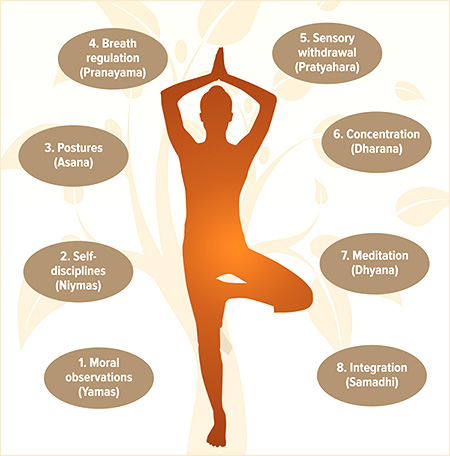Preventive health management is a concept which proposes that a disease or a debilitating health condition being managed by prior anticipatory actions rather than direct intervention with medicine, later. A simple case in point is smoking, which may lead to lung cancer hence avoiding smoking will be a preventive health management step against lung cancer, even for overall health.
Simple yet esoteric, when you realize the true extent of challenges our body and health have to face in the modern times.
Preventive health management is a layered concept which means it may or may not be fully apparent to many of us. What this suggests is that within the concept of preventive health management there are several underlying ‘protection’ layers. Something as simple as administering vaccination to young children, better protects them against a range of life-threatening infections, in future. Or in the later stages of these layers, you get end-of-life programs which look at the palliative aspect of medicine.
Regardless of these layers, preventive health management is emerging as a significant tool against health conditions. Whether it is personal health of an individual or collective occupational health at an organization. The need for preventive health management has never been so relevant in our recent times.
Majority of health related conditions in India can be classified under cardiovascular issues, obesity and musculoskeletal problems. India with its young demographics needs to better protect itself against health problems. Rising wages and economic independence hasn’t necessarily transformed into better standards of living in India. Our modern day lifestyle and occupational endeavors have led us to become sedentary and ever consuming. Processed foods and commonly marketed junk foods stack up against our health, packet by packet, one bite at a time. Our occupational environment poses a different set of challenges which may lead to backaches, diminished eyesight and stress which can promulgate and trigger other risk factors.
Preventive health management seeks to correct this issue by undertaking steps which promote healthy lifestyle and also focus on holistic health practices in order to combat such vagaries.
 Yoga is one such tool which has now been deemed as an invaluable gift from India to the world. Yoga is a union of physical, mental and spiritual practices that believes in maintaining and restoring order to the human body and mind through its training and discipline. The modern day yoga as we know it, in the form of exercise was a product of its introduction in the eighties to the Western world.
Yoga is one such tool which has now been deemed as an invaluable gift from India to the world. Yoga is a union of physical, mental and spiritual practices that believes in maintaining and restoring order to the human body and mind through its training and discipline. The modern day yoga as we know it, in the form of exercise was a product of its introduction in the eighties to the Western world.
Yoga combines several asanas (postures) along with breath regulation exercise to provide an exercise regimen for our body. The asanas can be performed independently or be used in combination with others depending upon the suitability for the person.
The other famed practice in Yoga is meditation. Meditation is process by which an individual can be trained to put there conscious state into an elevated state of awareness, such awareness, starts with one’s body and can be perfected through discipline.
It is clear that our professional as well as personal lives are in a state of imbalance from the health perspective
Performing yoga can at least restore the balance in our favour, both health and well-being wise. Although large randomized studies are lacking but small-group studies and case-specific evidence in both clinical and real world have lend credibility to Yoga as a useful preventive health management tool.
Our sedentary lifestyles and overconsumption of ‘bad-diet’ have thrown our biological system into a limbo. We then systematically choose to overcompensate this state via modern medicine and medical intervention through physicians and doctors, demanding a pill, as a cure.
Lately, most physicians across India have started suggesting to their patients the discipline of yoga. Yoga not only offers physical exercise but introduces our fatigued bodies to the rigours of training each day. This combination on its own, helps our body to at least swing back into the right direction and in combination with medicine for people suffering from ailments, it can induce a wider positive impact.
On a granular scale, yoga has shown decreased anxiety and stress in studied individuals who practiced Yoga for at least a period of one month. Yoga has also been linked to mental well-being, if practiced and followed for longer period of time. This is perhaps due to the routine discipline which slowly becomes a habit for the brain thus alleviating the symptoms that manifest in mental well-being issues.
Similarly, yoga training has shown to lower blood pressure and heart rate in studied individuals in a different study.
As we have mentioned that irrefutable link between yoga’s influences on such factors would need larger randomized studies, but credible evidence within a defined scope has been clearly established. Mayo Clinic, the world renowned medical cohort reports the benefits of Yoga in stress management, management of chronic conditions and for improving overall fitness. However, a key advice which it lays down within its message is to practice yoga under trained instructors or learning Yoga under supervision of trained Yoga practitioners. This is a key aspect of any physical form of activity as unsupervised practice of asanas can cause physical harm.
Therefore, if you are evaluating a lifestyle change by making Yoga, a part of your daily routine. Then ensure that you understand the importance of performing Yoga correctly. This thousand year wisdom which has been provided to us as part of a non-sectarian heritage, Yoga is a beginning to healthy living.
- Prateek Sharma